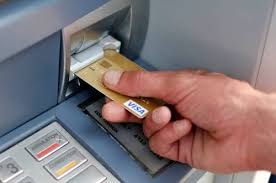Business
CBN orders banks to repay failed ATM transactions within 48 hours

The Central Bank of Nigeria (CBN) has ordered commercial banks and other financial institutions to refund customers for failed Automated Teller Machine (ATM) transactions within 48 hours, as part of a broad initiative to strengthen consumer protection and restore confidence in the banking sector.
This new directive is contained in a draft guideline issued by the apex bank on Saturday, titled “Exposure of the Draft Guidelines on the Operations of Automated Teller Machines in Nigeria.”
The document, signed by the Director of Payments System Policy Department, Musa I. Jimoh, was sent to banks, card issuers, payment service providers, and independent ATM operators. The CBN has called for stakeholder input before October 31, 2025.
According to the draft, transactions carried out on a customer’s own bank ATM (known as “on-us” transactions) must be reversed instantly. Where system failures prevent immediate reversal, banks are required to manually process refunds within 24 hours.
READ ALSO:Account signatories: CBN replacing civil servants with APC members – ALGON
For “not-on-us” transactions — those conducted on other banks’ ATMs — refunds must be completed within 48 hours.
“Customers must not be made to suffer for failed transactions caused by system errors or network failures,” the circular emphasised.
The CBN also directed financial institutions to deploy technologies capable of automatically reversing failed or partial transactions, thereby eliminating the need for customers to lodge complaints.
Funds held by banks due to failed cash disbursements are to be reconciled and refunded immediately.
The apex bank said the reform addresses growing dissatisfaction among customers over delays in refunding failed transactions, adding that it forms part of wider efforts to modernise Nigeria’s payment system, improve reliability, and align operations with global standards.
As part of the new measures, banks and card issuers must ensure a minimum of one ATM for every 5,000 active cards. Compliance targets are set at 30 per cent for 2026, 60 per cent for 2027, and full compliance by 2028.
All new installations, relocations, or removals of ATMs will require prior CBN approval.
To enhance safety, ATMs must be fitted with CCTV cameras and anti-skimming devices and located in secure or well-lit areas. Machines are expected to meet Payment Card Industry Data Security Standards, maintain audit logs, and display functional customer service contacts.
At least 2 per cent of all ATMs must also include tactile symbols to aid visually impaired users.
The guidelines further stipulate that ATMs should dispense cash before returning cards, allow free PIN changes, issue receipts for all transactions except balance checks, clearly display transaction fees, and only dispense clean notes. They must also be equipped with backup power to minimise downtime.
Operators are not allowed more than 72 consecutive hours of downtime. When outages exceed that period, they must inform the public of the reason and expected restoration time.
To ensure compliance, the CBN will conduct routine audits and inspections, while ATM operators will be required to submit monthly reports detailing their deployments and locations. Institutions that violate the regulations will face sanctions, though specific penalties were not disclosed.
Explaining the reason for the overhaul, the apex bank noted the rise in customer complaints about failed transactions, cyber threats, and declining service quality, saying the objective is to “build a payments system that works seamlessly for everyone, urban and rural users alike.”
Nigeria’s electronic payments system has witnessed rapid expansion, with more than 200 million cardholders relying on digital banking. However, network issues, poor infrastructure, and delayed transaction reversals continue to erode trust.
The latest guidelines, released eight months after ATM fees were reviewed, are expected to improve service delivery, enhance transaction security, and make banks more accountable. Stakeholders are encouraged to send feedback ahead of the final adoption, which may take effect before the end of the year.





















